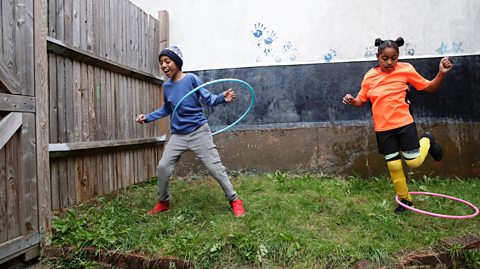With the long school holidays, summer is the perfect time to get our kids outdoors and playing adventurously. We know the pandemic has had a negative impact on some children’s mental health. But recent research suggests that children who spend more time playing adventurously have fewer mental health issues like anxiety and depression.
To get you started, Parents’ Toolkit has pulled together lots of ideas to help you get the kids outdoors and exploring for the Summer of Adventure. There are articles about what to look for at the seaside, quizzes on birds, trees and bugs and loads of tips for stuck parents. So, what are you waiting for?
And if you need some encouragement - watch this video from naturalist and explorer Steve Backshall and his wife, Olympian Helen Glover…

What do we mean by ‘adventurous’ play?
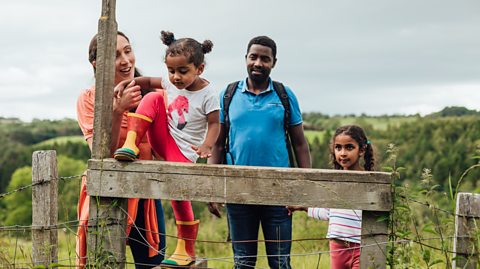

“Climbing a tree on their own, going for a walk in the dark with a torch, going camping or exploring somewhere new…” - Professor Helen Dodd
Helen Dodd is a Professor of Child Psychology at the University of Exeter. She led the study which uncovered a positive link between children aged 5 to 11-years-old playing adventurously and their mental health, especially among children from lower income families.
Professor Dodd says it will be different for each child, but describes adventurous, or ‘risky’, play as giving children the space to experience “being on the edge of their comfort zone”.
This could include things like climbing a tree on their own, going for a walk in the dark with a torch, going camping or exploring somewhere new, going paddling in a stream with no shoes on, or jumping across rocks to cross a river.
It’s anything that “has a certain level of fear, excitement or thrill but that still feels good”. And the good news is it doesn't have to cost anything – a lot can take place in a park or green area on your doorstep.

Why outdoors, adventurous play is important
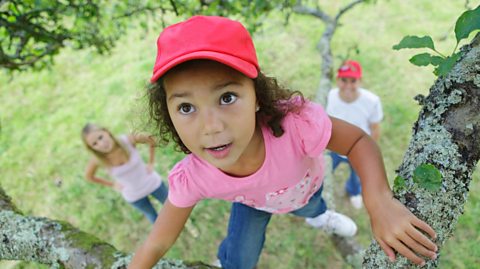
Professor Dodd, who’s also a mum of two, says adventurous play is particularly helpful in the prevention of things like anxiety, because it’s about children learning to feel uncertain: “If you think of coping as a muscle, we need to grow that, so that children can handle things like exam pressures in the future. They need to experiment with different ways of coping – when children play adventurously they have to cope with feelings of uncertainty, and learn to cope when it does or doesn’t go well. They also learn about the thrill – like that feeling of butterflies in the tummy – that happens when they’re scared but also excited. They learn it’s a normal reaction and nothing to be frightened of.”
Professor Dodd adds: “People avoid things they’re scared of, and anxiety becomes self-perpetuating. Adventurous play is also about learning to judge risks and give things a go.”
How to overcome your own fears
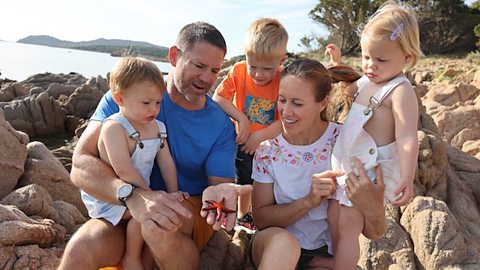
“You could try doing some adventurous play with your child. Giving things a go together, even when you feel a little bit unsure, can end up being really fun.” - Professor Helen Dodd
It’s perfectly natural to worry about your child’s safety if they engage in outdoors or adventurous play. The best thing is to acknowledge those fears, and to try and sit with your own anxiety a little longer. Professor Dodd says: “They’re just feelings, so if we can get used to having those feelings and seeing that nothing bad happens, that can help.”
She adds it’s about gradual exposure to your child taking some risks: “Start with one thing, like them being out of sight for one minute (depending on the age of the child) or, if they’re climbing a tree, let them try to go a bit higher next time.”
She reiterates that as parents we’re doing the best that we can. Try thinking about what role model you want to be for your child: “Do you want to model ‘I’m nervous but will give it a go’ or ‘I’m nervous and will avoid it’? You could try doing some adventurous play together with your child. Having those exposure experiences together can be fun and feel quite nice. But you can also decide to sit back and watch.” It’s a really hard thing to do, but try to be conscious of your actions or what you’re saying and how that’s influencing your child’s experiences.
How to get reluctant kids outdoors
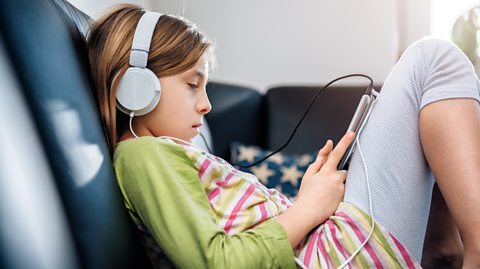
“Think about the ‘doorstep mile’. It can be the hardest part of getting out!” - Helen Glover MBE
Professor Dodd believes, when it comes to getting kids out of the house, it helps to have structure so that the child knows what’s going to happen. For example, telling them ‘tomorrow, we’re going to do this’ and then sticking to that plan. She says: “You can structure it around things at home that they don’t want to leave – for example say ‘you’ll get time on your phone, then we’ll have breakfast and then we’re leaving’, and then follow through."
As a mum herself, Helen Dodd says: "No matter how much they don’t want to do something, they end up enjoying it – the hurdle is actually leaving the house.”
Olympian Helen Glover describes getting everyone ready to get out as the ‘doorstep mile’ because “it can be the hardest part of getting out!”
You can also read this article ‘Seven ways to get your kids outdoors’
More ideas for adventurous play
Use our summer of adventure activities to get you started, whether that’s creating a journey stick, spotting wildlife with Springwatch naturalist Megan McCubbin, or beach combing with experts from the Wildlife Trusts.
In their book Wildlings, Olympian Helen Glover and naturalist and explorer Steve Backshall suggest other simple outdoors activities like…
- Building an A-frame den with wood and sticks
- Finding birds’ nests or feathers
- Rock-pooling or foraging at the beach
- Making tree bark rubbings
- Pond dipping
- Making paper boats
Their advice is: “Keep is simple. Get a snack, a water bottle, maybe a spare change of clothes, and just do it.”
For more help on keeping your child happy this summer The Anna Freud Centre have this Self Care Summer content.

More from BBC Bitesize Parents' Toolkit…
Parents' Toolkit
Fun activities, real-life stories, wellbeing support and loads of helpful advice - we're here for you and your child.

Megan McCubbin: How to spot UK wildlife this summer
Springwatch presenter and zoologist Megan McCubbin has advice for families to discover the amazing wildlife that call this country home.
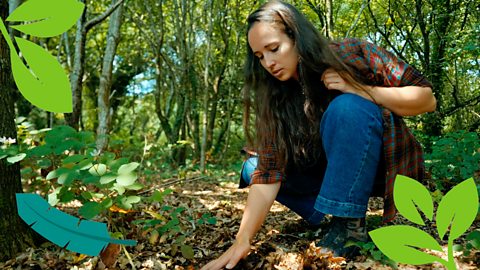
Quiz: Learn to spot UK birds using their songs
Help your child learn how to identify British garden and woodland birds from their songs and appearance.
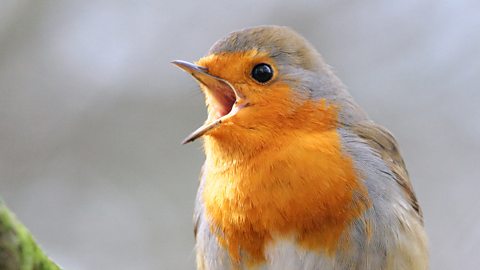
Quiz: Can you identify a tree by its leaves?
Do you know your oak from your yew? Turn over a new leaf and learn about trees!

Five ways you can help boost your child’s confidence this summer
Educational psychologist Lee Randall has some tips to help you nurture your child’s confidence.
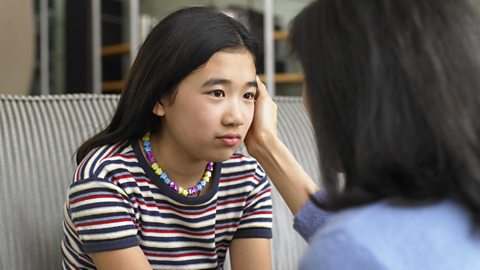
Five tips for helping your kids play and learn by stealth this summer
Dr Anisa-Ree Moses explains the benefits of play for your kids - including boosting their learning and wellbeing.
